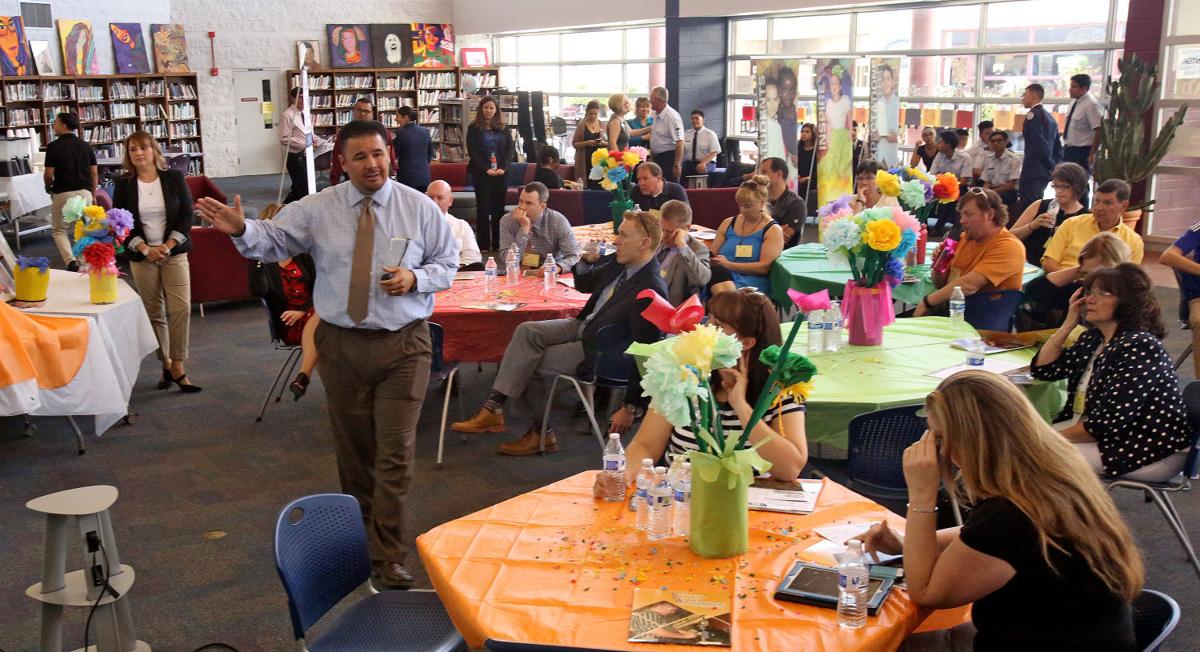The agriculture education program at Desert View High School is at risk of being shut down as enrollment numbers have been consistently low over the years.
It will be discontinued in the 2017-18 school year unless enrollment climbs, said Kathy Prather, Sunnyside Unified School District’s director of career and technical education.
For the 2015-16 school year, just 10 students enrolled in the Desert View agricultural program. The district anticipates that even fewer will enroll in the program now that students must take two years of it to receive a science credit. It used to be that students who were not interested in agriculture but wanted to take one course in the program for a science credit could do so.
“We want to make sure that we offer the programs that the students want to enroll in,” Prather said.
The agriculture science program, facilitated by the Pima County Joint Technical Education District, began at Desert View in 2008, she said. It will continue through the end of the next school year, provided the district can find a teacher for it.
Last year’s teacher, who spoke out against the possible closing of the program at a recent governing board meeting, resigned after she said she had a conflict with the school.
If the district is unable to find a teacher for the program, it will end immediately, Prather said. Resources it used, including some equipment such as watering and plumbing systems, rainwater cisterns and microscopes, will be redistributed to other programs.
Sunnyside High School’s agriculture program, which started in 2007, was shut down after the 2012-13 school year due to low enrollment.
But county-wide agriculture science programs aren’t necessarily losing popularity, said Curt Bertelsen, Pima JTED’s director of professional development.
Agriculture programs have evolved to include not only farming and ranching but also bioscience, landscape architecture, forestry and hydroponics.
However, finding an agriculture teacher could be a lot more difficult than finding students wanting to enroll in the program, he said. The industry pays a lot more than teaching would.
“The limiting factor is finding someone willing to start at $31-, $32- or $33,000 a year,” he said. “A lot of people have options to make better money in the industry.”
The success of an agriculture education program at the high school level often depends on who is leading the program, he said. He does not think of Desert View’s agriculture program as having a low enrollment issue, but rather, an educator retention issue.
“It’s really contingent on the vision of the teacher and community support for the agriculture program,” Bertelsen said.
JTED is willing to help a candidate with an agricultural background but no teaching certification obtain one, he added.





